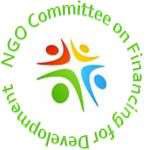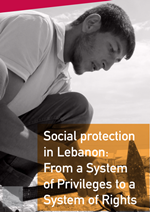Published on Thu, 2019-02-21 09:16
The 2030 Agenda for Sustainable Development has become a premier driver and justification for institutional and financial reforms along with the collection and analysis of more and more sophisticated data and statistics. Many UN Commissions are contributing to the implementation of the 2030 Agenda and achieving the Sustainable Development Goals (SDGs). One of these is the UN Statistical Commission, which meets for its 50th annual session 5 - 8 March 2019 at the UN headquarters in New York. Big data, geospatial data, national statistical capacity, and common standards for the exchange of data are among some of the agenda items the Commission will address, along with progress on the SDG indicator framework. |
Published on Mon, 2019-02-18 11:59
In Palestine, the main obstacle to realizing the SDGs is the occupation that continues to confiscate lands and, as reported by UNCTAD, deny Palestinians the human right to development. The indicators are alarming: unemployment has reached 27.7 percent in the Palestinian territories occupied in 1967 and 44 percent in the Gaza Strip. The poverty rate for the year has reached 29 percent in 2017 and it is 53 percent in the Gaza Strip, reflecting the catastrophic effect of the 10-year ongoing blockade. |
Published on Mon, 2019-02-18 11:55
In Nicaragua, the joint report of Coordinadora Civil and the National Platform in Defense of Water and Life, argues that access to water is both a human right and one of the Sustainable Development Goals”. Nicaragua is suffering a shortage of safe water as a result of the combined effect of climate change that reduces superficial water and the unregulated extraction of underground water by industrial agro-exporters and enclave tourism. |
Published on Fri, 2019-02-15 16:43
The statement of the NGO Committee on Financing for Development, was submitted to the UN Financing for Sustainable Development Office as a stakeholder input to the 2019 report of the Inter-Agency Task Force on Financing for Development. A major part of the statement is about social protection, which is a theme this year in the Commission on Social Development, Commission on the Status of Women, and the Financing for Development Follow-up Forum. |
Published on Fri, 2019-02-08 19:04
Lebanon presents an interesting case when it comes to social policy. In fact, when the developmental state model was being implemented all over the world, Lebanon was adamant in its laissez-faire economy. The developmental state has brought about welfare regimes and what was called welfare states in advanced capitalist economies in Europe. In parallel, except for a few years, Lebanon has opted for minimal state intervention in public policy, and social protection in general. This has been exacerbated in the reconstruction period where the private sector and non-state actors dominated the realms of social services and protection, such as health and education. In recent years, and with social protection gaining momentum on the international level, the discussion on social protection and social security resurfaced in Lebanon. This has been accentuated as studies and reports on alarming poverty rates, inequality and unemployment in the country became recurrent. |
SUSCRIBE TO OUR NEWSLETTER







